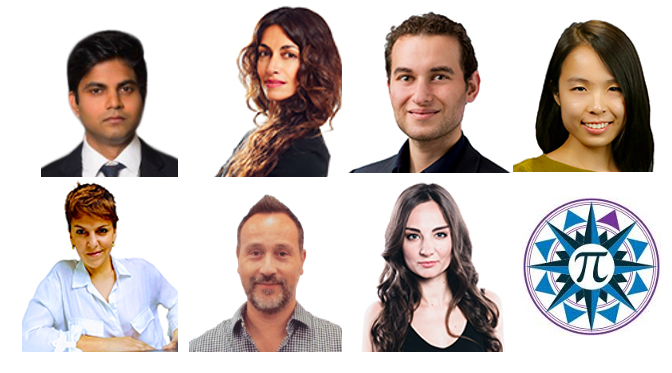Today, we’re excited to announce the complete 2020 cohort of Fellows, who begin March 2020.
With origins spanning over seven countries across five continents, and a proven track record of impact, the inaugural class of Fellows at the Portulans Institute is one highlighted by the talent and diversity of its people and projects.
An activist and coder aiming to help developing countries increase their technological readiness. A Ph.D. candidate focused on how innovation can be more equally distributed globally. A human rights expert looking to analyze the discriminatory effects that arise from the use of automated decision-making systems. A lawyer aiming to expand the scope of the Network Readiness Index, with a specific focus on AI and the future of work.
These are just some of the inaugural Portulans Institute Fellows. Over the next year, these Fellows will conduct research and create outputs related to human capital, technology readiness, and innovation policies, and represent Portulans Institute as an expert ambassador.
As we enter the new decade, the role of talent, innovation, and ICT for sustainable growth is expanding and they are key to the competitiveness of countries around the world, and the Portulans Institute aims to ensure this movement advances.

Siyoa Li: Li plans on producing two research projects during the time of her fellowship. One project will study the public comments channel that foreign governments and the private sector use to provide information to the USTR about intellectual property practices in foreign countries, and maps out the patterns that are involved in the process using novel text analysis methods. The second project will use various data sources to assess intellectual property institutions in different countries, and demonstrates how the gap between intellectual property protection in multinational firms’ countries of origin and countries of investment gradually closes over time, as a result of actions from relevant stakeholders such as firms, the home government, and the host government.
Kushlesh Kumar: During his fellowship, Kushlesh’s core issue will be based on the certification in AI readiness and pertaining areas. Furthermore, he aims to learn and grow his understanding of AI, while also producing a detailed presentation of his findings.
Olena Mykhalchenko: Throughout her fellowship, Olena hopes to extend her previous research project and deliver a workable strategy for harmonizing stakeholder interests in the context of data governance to support innovation readiness. This strategy would come in the form of a white paper that would lay out specific steps that international negotiators can take to support the convergence and evolution of privacy frameworks, digital trade policies, and regulatory stances on artificial intelligence. She also aims to organize an event with partner organizations to present the strategy and discuss with participants how practitioners can use and improve the guidelines.
Anass Sedrati: During his fellowship, Sedrati will focus on the themes related to the Network Readiness Index (NRI), as he is particularly interested in the combination of different metrics related to governance and people, and how they impact the level of Network Readiness in different countries. He hopes to write a research paper focused on the African context, and more specifically on aspects related to Digital Governance.
Niousha Roshani: While a Fellow at the Portulans Institute, Roshani plans on producing two outputs. Firstly, she aims to highlight and harness knowledge produced in AI technologies across Latin America and Africa in order to examine the risks, insights, and possibilities of AI in a local and contextualized framework. Secondly, she hopes to produce an event (or a series of events) that focuses on booming new AI technologies created by young talents of African descent in Africa and Latin America that have helped to address many of our global challenges and point the way to a bottom-up solution to the inherent ethical and practical problems of the expansion of AI.
Rafael Escalona Reynoso: Rafael’s focus as a Fellow at the Portulans Institute will be to help develop a Global Innovation Index Community of Practice (GIICoP). This initiative will aim at finding the appropriate channels to bring together policy analysts from the public and private sectors and researchers from around the globe – including from international organizations, think tanks and academia – to foster a practical exchange of experiences in the use of the wide range of findings stemming from the GII. The initiative will focus on three core ideas: developing best practices for ways in which the GII can be used as a decision-making tool, how its results can be communicated to the wider public, and what interpretations should be avoided.
Yasodara Cordova: Yaso will advise on how the Global Innovation Index, the Network Readiness Index, and the Global Talent Competitiveness Index can be connected to practical actions, supporting the creation of accessible, open guidelines geared towards countries in development.
We would also like to thank everyone who submitted an application to become a Fellow, as we are truly grateful for the significant number of applications received in such a short period of time.
Sign up for our newsletter to stay up to date on the work of our Fellows, then meet our complete 2020 cohort of Fellows below.



